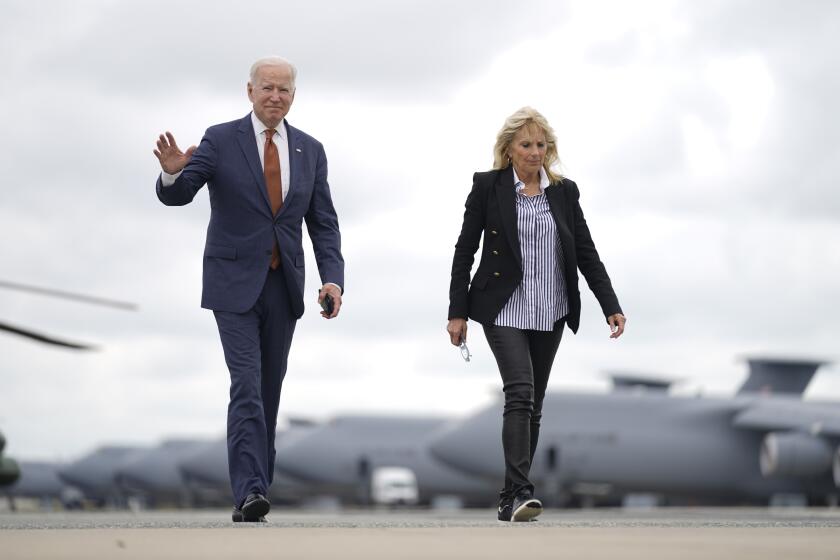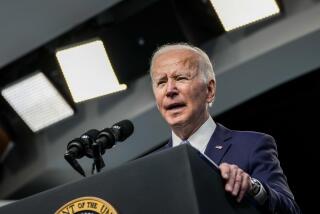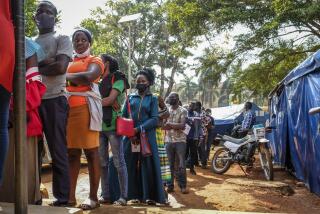Biden to announce U.S. will donate 500 million COVID-19 vaccine doses to poor nations
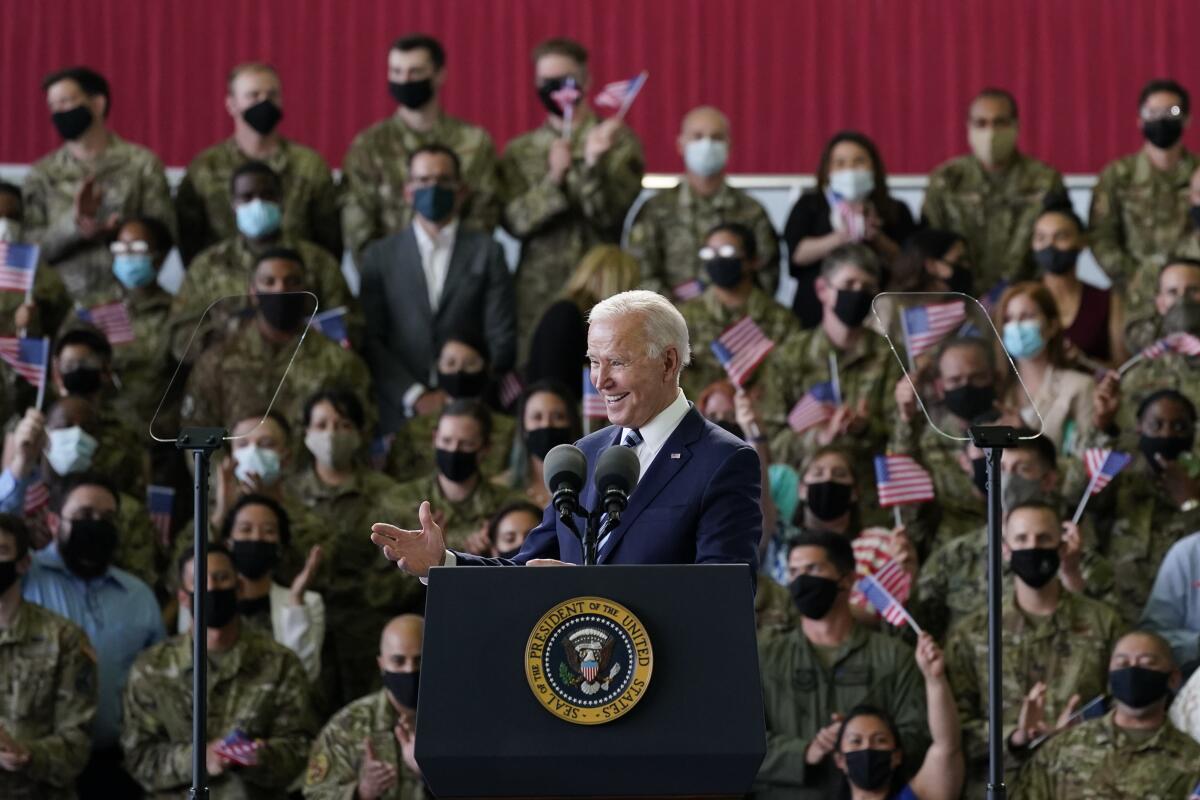
NEWQUAY, England â The United States will buy 500 million doses of Pfizerâs COVID-19 vaccine to donate to impoverished nations, signaling a massive new investment in the worldwide inoculation campaign, according to a person familiar with the initiative.
President Biden will announce the plan Thursday before attending the annual summit of the Group of 7, made up of the leaders of seven of the worldâs largest democracies, in Cornwall, England. The Pfizer doses will be provided to COVAX, an international partnership for distributing vaccines to low-income countries.
The donation represents a cornerstone of the U.S. effort to bring the global pandemic to an end, as well as to counter the influence of authoritarian countries like Russia and China, which were quicker to provide vaccines overseas. Biden focused first on providing enough vaccines to Americans, drawing criticism from humanitarian organizations who said the worldâs richest nation shouldnât be sitting on the sidelines.
Ramping up international vaccine distribution will not only save lives by curtailing COVID-19 outbreaks but also stem the emergence of new, potentially more dangerous variants that could spread more quickly from country to country, lengthening a pandemic that has already killed an estimated 3.75 million people.
Speaking to U.S. military personnel after landing in England, Biden said he would use the summit to urge allied nations to play a larger role in addressing the coronavirus and other problems like climate change. Heâs also scheduled to attend meetings with the North Atlantic Treaty Organization and the European Commission in Brussels. Heâll then travel to Geneva to sit down with President Vladimir Putin of Russia, which is not part of the G-7.
âThe United States is back and the democracies of the world are standing together to tackle the toughest challenges,â he said.
Biden leaves Wednesday for England, Brussels and Geneva for summits with G-7 and NATO allies, ahead of meeting Putin next week at a time of high U.S.-Russia tension.
The U.S. will provide 200 million Pfizer doses this year and 300 million in the first half of next year, according to the person familiar with the plan. The person requested anonymity to provide details before Bidenâs official announcement, which comes after weeks of behind-the-scenes work by administration officials.
The vaccines will be provided through COVAX to 92 countries and the African Union, which comprises 55 nations. The Pfizer vaccine requires two doses to be fully effective, so the donations would be enough to vaccinate 250 million people. By comparison, 140 million Americans have been fully vaccinated.
The news comes at a critical time in the global crisis. Of utmost concern is the Delta variant, also known as B.1.617.2, which first emerged in India and is believed to be partially responsible for the countryâs recent explosive spread. The variant, suspected to be 40% to 50% more transmissible than the Alpha variant, or B.1.1.7, which emerged in the U.K., has now been detected in some 60 countries.
The Delta variant is also quickly becoming the dominant strain in countries like the Democratic Republic of Congo, according to John Nkengasong, director of the Africa Centers for Disease Control and Prevention. Fewer than 0.1% of people in the central African country have gotten a vaccine.
Many African nations do not have the biotech capacity to identify and track the movement of different variants within their borders. And their vaccine inventory contracted when India, a major global supplier, halted exports of the shots to address its domestic crisis. Countries such as Burkina Faso and South Sudan, for example, also report vaccination rates below 0.1%.
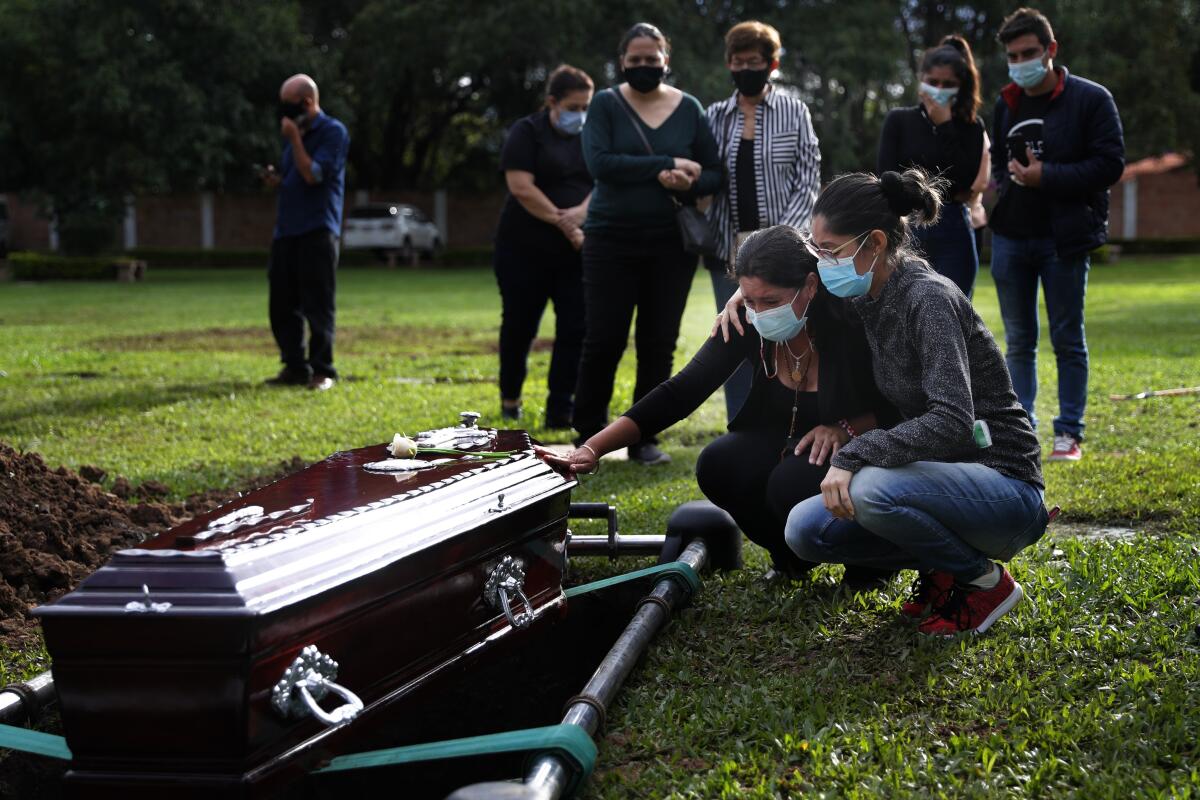
Slow vaccination campaigns are of major concern, because experts canât predict what kind of advanced variants will exist by the time the rollouts reach a critical mass. Every new coronavirus infection is a chance for mutations to arise, potentially ushering in a dangerous new version of the virus that could evade existing defenses. When such variants arise and move quickly, even fully vaccinated countries could become at risk.
Thatâs why public health officials continue to argue for defensive tactics, such as masking and social distancing, until each regionâs case numbers are negligibly low. The long-lasting solution, however, is vaccination. The World Health Organization estimates that 11 billion doses are needed to inoculate the planet.
âWe wonât end this global pandemic anywhere unless we beat it everywhere,â Tom Hart, acting CEO at the One Campaign, an international anti-poverty organization, said in a statement. âDonating doses to COVAX will save lives, reduce the spread of variants, and help reopen the global economy.â
Activists will continue to push for even stronger action from the U.S. and other rich nations. Niko Lusiani, a senior advisor with Oxfam America, said intellectual property rules must be lifted and technology must be shared to boost vaccine production capacity around the world.
âItâs encouraging to see that in its quest to get America vaccinated, the Biden administration has not lost sight of the needs of those outside our borders,â Lusiani said in a statement. âHowever, charity is not going win the war against the coronavirus.â
The Biden administration already announced that it would support a waiver for intellectual property protections, but the European Union has balked at the idea.
Before Thursdayâs announcement, the U.S. had committed 80 million vaccines to the global effort by the end of June. Itâs also providing $2 billion in funding to COVAX, with another $2 billion spread out over the next two years.
Many countries have struggled to get access to vaccines as rich nations bought up doses to inoculate their own populations. Numbers from Our World in Data, a project based at the University of Oxford, show a stark gap in worldwide distribution.
Although Brazil and India have suffered devastating outbreaks, theyâve struggled to vaccinate people as quickly as other nations. Only 24% of Brazilians and less than 14% of Indians have received at least one dose.
And though the numbers of new COVID-19 cases and deaths are decreasing globally, there are major discrepancies across regions. Almost every country in South America, for example, ranks among those with the highest cases and death rates worldwide.
Vaccination coverage on the continent varies. Uruguay was among the worst hit, but almost a third of the population has been fully vaccinated. Peru has the worldâs highest per capita death toll â about 1 in every 175 people have died â but less than 5% of the country is fully vaccinated.
Carlos del Rio, an infectious-disease expert at Emory University School of Medicine, said itâs âway, way too earlyâ to say whether higher vaccination rates will consistently lead to lower death rates across the world.
Still, he said places like Israel, which rapidly vaccinated large swaths of its population and drove down infections, showed how life-saving the measure can be. The Biden administrationâs forthcoming announcement could help other countries catch up.
âGlobal pandemics will be solved by a global solution,â Dr. Anthony Fauci told MSNBC on Wednesday. âYou cannot live in a vacuum in this world. Weâre an interconnected world, particularly when youâre dealing with a highly transmissible respiratory virus.â
Fauci, director of the National Institute of Allergy and Infectious Diseases, added, âthere are many countries in the world in which the level of vaccine is so low, through no fault of their own. They donât have the resources. They donât have the capability.â
Megerian reported from Washington, Baumgaertner from Los Angeles and Stokols from Cornwall.
More to Read
Get the L.A. Times Politics newsletter
Deeply reported insights into legislation, politics and policy from Sacramento, Washington and beyond. In your inbox three times per week.
You may occasionally receive promotional content from the Los Angeles Times.
